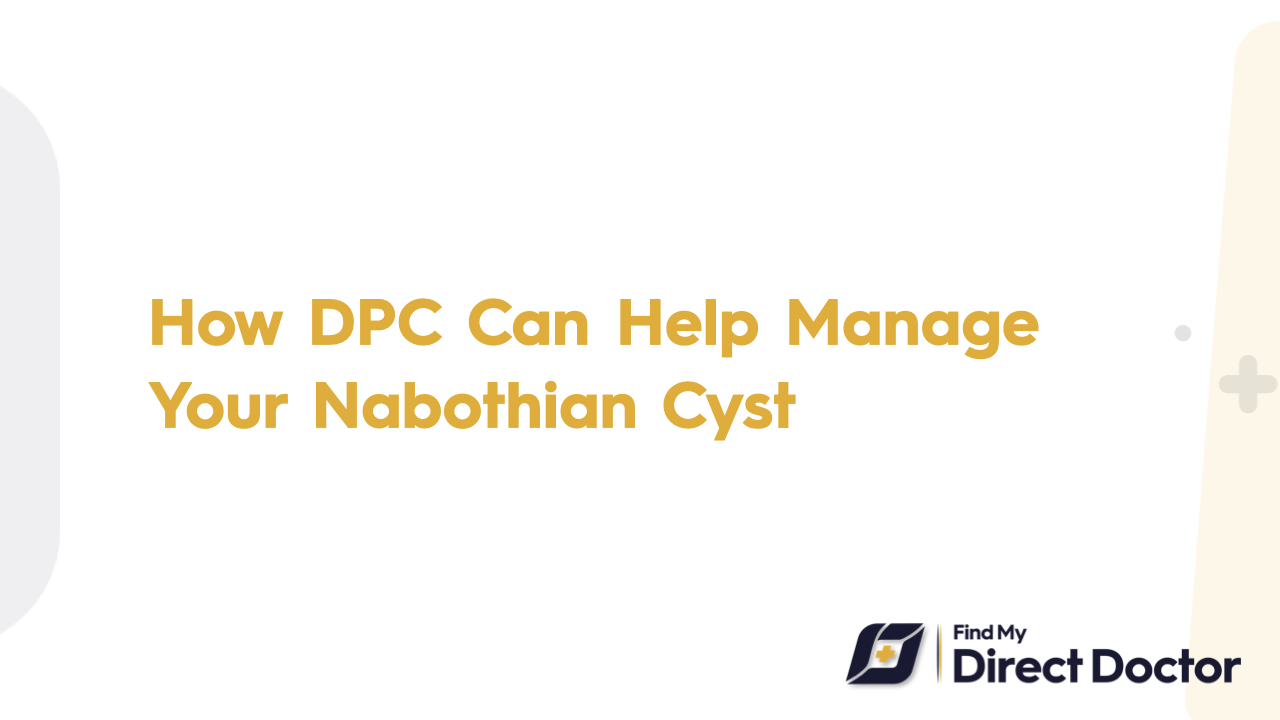



A benign (non-cancerous) growth known as a Nabothian cyst develops on the cervix, frequently as a result of clogged cervical glands. These cysts usually form when mucus becomes stuck in the cervix's glands, creating a fluid-filled sac. Nabothian cysts are frequently found during normal pelvic exams or imaging testing, and they are typically asymptomatic. The majority of women do not have any symptoms and do not need treatment, yet in certain instances they may produce slight discomfort or atypical vaginal discharge. Generally speaking, these cysts are not dangerous and do not present a serious health risk.

By offering individualized, ongoing care and monitoring, Direct Primary Care (DPC) can assist in the management of Nabothian cysts. Patients who use DPC benefit from more regular visits and a direct line of communication with their primary care physician, which guarantees prompt resolution of any cyst-related issues or changes. A healthcare professional may keep an eye on the cyst's size and symptoms, provide advice on when medical treatment might be required, and make sure that any potential problems are avoided, even though the majority of Nabothian cysts do not need to be treated.
For patients with Nabothian cysts, DPC provides a number of benefits. The ease of access to medical professionals is one of the primary advantages. Having a primary care physician who is aware of your medical history can help to ensure that any changes are swiftly detected, as Nabothian cysts are typically benign and asymptomatic. DPC eliminates the need for lengthy wait times for consultations or expert referrals by enabling ongoing care and monitoring. Better communication between the patient and the practitioner is another benefit of this care paradigm, which creates a supportive environment for handling any cyst-related concerns.
Nabothian cyst treatment in a Direct Primary Care system is tailored to each patient's specific medical need. Having a primary care physician who is knowledgeable about cysts can assist guarantee that the patient gets the best care, even though many cysts don't need to be treated. During routine examinations, the provider can keep an eye on the cyst and offer advice on what to do if it produces symptoms or issues. Personalized care improves overall health management by promptly addressing the patient's concerns and, if necessary, customizing treatment options to suit their unique circumstances.
Previous Post